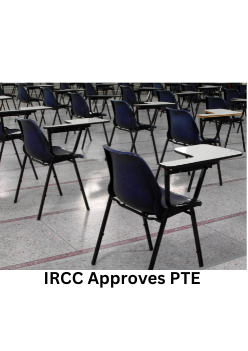INTRODUCTION
For any student aspiring to apply to a university in the UK, writing the Statement of Purpose is can be quite intimidating. If you categorically list down the number of things you need to include and start working up a structure then you will definitely come up with a good SOP.
Your SOP should state your objectives, your background, education, purpose and plans after you complete your education. Only when you know what and how to write, and give yourself plenty of time for preparation, will you be able to write the ‘SOP’ effectively and increase your chances of admission.
For this, you must have the benefit of receiving assistance from the Hurray Overseas Education Consultant team who have created some guidelines to help you plan and write your SOP effectively.
Before you begin
…keep in mind the objective behind the university’s demand for an SOP.
Generally, for UK universities, the SOP is meant to be an indicator of the candidate’s academic strengths and potential. Your SOP must reflect your academic and other relevant achievements, that you have clear and relevant reasons behind your desire to pursue the programme in question, as well as your preparedness to take on the rigours of the programme.
The particular university/programme you are applying for may have additional specific objectives/requirements – make sure that you acquaint yourself thoroughly with what is required of you.
Step 1: Planning your SOP
Before you can begin writing, you must know what to write!
The following questions will help you gather and organise your thoughts. Carefully consider your answers to each of these questions. They will later form the basis of the structure and content of your SOP. You can write them down, organise them, and perhaps run them by a trusted advisor.
-
Why do I want to study this subject?
-
Why do I want to pursue this particular programme, at this particular university?
-
How does this programme fit my skill-set?
-
What are my career aspirations, and how will this programme help me achieve them?
-
If you’re applying to a Master’s programme in a different subject from what you studied in your undergraduate programme, think about the following:
-
why you have decided to change your subject?
-
how will what you have studied in your undergraduate programme help you bring fresh insight to your new chosen subject?
-
how will study this new subject aid you in your academic goals?
Step 2: Structuring your SOP
Introduction: Every good piece of writing must begin with an eye-catching introduction – and nowhere is this truer, than in the case of an SOP!
-
The introduction paragraph must carry your ‘statement of purpose’ i.e. the statement of your goal, and your determination to take on the rigours of the programme to achieve it. Your introduction must act as a framework for the rest of your essay – here, you can outline your reasons for your interest in this programme and/or in this subject, and what you hope to gain from it. This will later be expanded and supported by what you write in the main body of your essay.
-
Be specific: Avoid general sentences or clichés, like, for instance – “I have always had a passion for this subject.” Instead, think about why you have such a passion – and write accordingly. You can refer to personal experiences, academic experiences, or relevant work experience, that have led to, or deepened your interest in this subject, or have motivated you to study further.
Main body: Once you have written your introduction, you must now expand on what you have already stated about your intentions. In Step 3, we will get into what you will write. But first, you must focus on the how:
-
Cohesion: ensure that you divide the main body into short paragraphs. Each paragraph should deal with one main idea, and there must be a clear and logical connection between the end of one paragraph and the beginning of the next.
-
Structuring ideas: begin each paragraph with a clear statement, elucidating the main idea. This must be followed by further details or examples, which will support your main idea.
-
Use headings: while this is not necessary, it is an excellent tool to help you organise your content. Even if you choose not to include the headings in your final draft, use them anyway during the writing process. You will be able to decide what content should go where, accordingly. An example of the kind of headings you can use are –
“Why this subject?
Why this university?
Abilities
Personal experiences
Career aspirations”
The above can function as a sample structure for you to follow while organising your content.
Conclusion: In your final paragraph, you must restate your motivation to apply for this programme and your intention to engage conscientiously with the demands of the same. Avoid repeating what you have already written.
Step 3: Developing Content for your SOP
The major points that you need to cover over the course of your SOP, include:
-
Your reasons for choosing this particular programme, and this university
-
Relevant academic experience, such as subjects studied, and major work including projects and dissertations and/or relevant work experience
-
Evidence of your key skills – including but not limited to research, critical thinking, communication, organisation, planning and time-management
-
How you intend to make yourself an asset to the university/department
-
Who your main influences are and why
-
Anything that makes you stand out – such as your membership in an organisation, any papers that you have published, or any awards, scholarships or prizes that you have achieved
-
Your career aspirations and how the course will help you achieve them
A few guidelines while developing this content are as follows:
-
Keep in mind the objective of the SOP while writing – i.e. to indicate your eligibility for this programme. Accordingly, connect every point with this objective. For instance, if you have won a scholarship, use it to indicate that you are a hard worker and a conscientious student; if you have work experience, use it to indicate how you have developed certain skills, such as organisational skills or time-management.
-
Be specific: For instance, avoid general statements like “I was inspired by the university’s excellent infrastructure and innovative research.” Instead, write about the specific aspects of the university/programme, that have led you to consider it – such as the reputation of the university in a particular field, the research and teaching focus areas and strengths of the department, the research work being done by a faculty member, or university facilities that you believe will aid you in your academic endeavours. Remember, the university will want to see that you are well-acquainted with what it stands for and the work that it is doing.
Step 4: Language matters!
Remember, your SOP is your first impression on the admissions officials who read it! Your ability to express yourself through writing in a clear and concise, as well as interesting manner, will be a bonus in addition to your primary achievements and could make a difference in getting you that precious offer letter.
Keep the following tips in mind, before and during the writing process:
-
Your writing must be crisp and clear. Sentences should not exceed 25-30 words. Keep things simple and to-the-point, in order to get your message across successfully.
-
Good spelling and grammar are a must – if in doubt, cross-check with a dictionary, or get a reliable teacher or counsellor to review your writing.
-
Tone: the tone of your writing must be positive and confident. Your writing must reflect your determination to enter this programme and your conviction that you will be an asset to the university. But be careful not to come across as boastful – rather, link your abilities and achievements with your academic and career goals.
While these points will help you to develop a top-notch statement of purpose, remember – there’s no harm in getting help from the experts! The Hurray Overseas Education Counselling team is equipped to help you develop the perfect statement of purpose. To discuss all your Study Abroad needs, book your one-on-one session with us now – reach out to us via email overseaseducation@hurrayedutech.com, or call us on 8971357928 for more details.











Post Comments